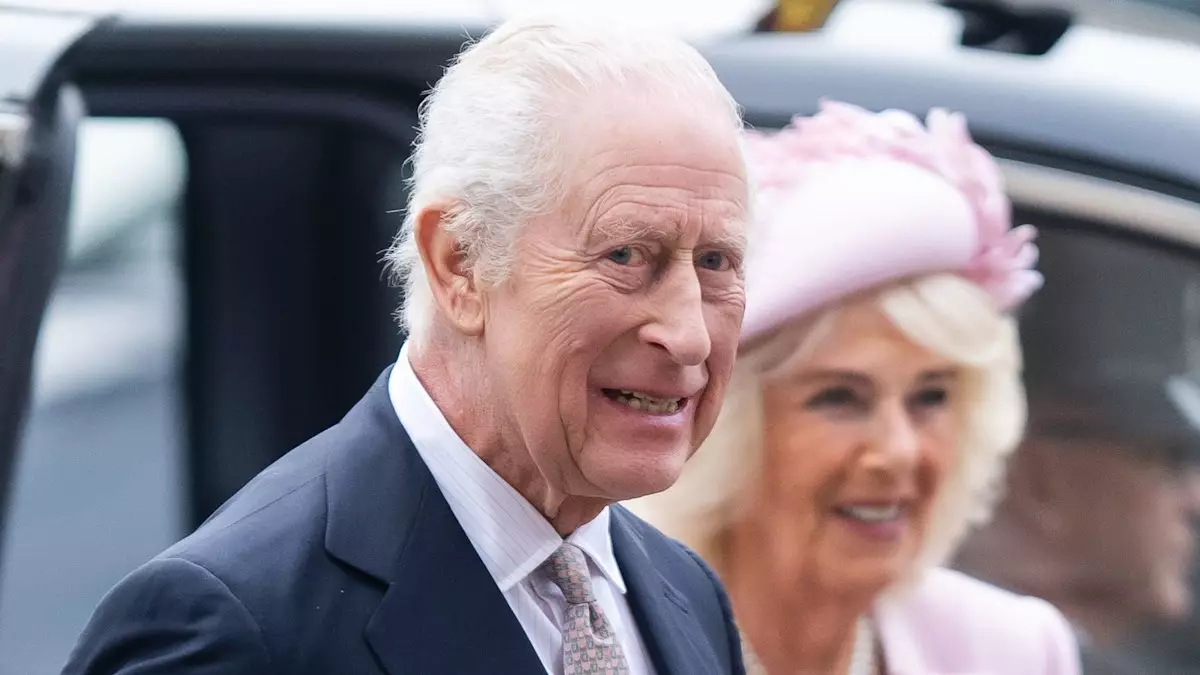Recent reports about King Charles facing health challenges after undergoing cancer treatment have raised pertinent questions about the intersection of duty and personal well-being among public figures. As Buckingham Palace announced his hospital visit, the commitment and drive for royal duties were unmistakable; however, the implications of such dedication are profoundly nuanced. While it is commendable that the King is eager to resume his responsibilities, the notion that tenacity equates to excellence in leadership may need a reevaluation. This view not only places pressure on the individual but also sets a precedent that could endanger the long-term health of leaders like Him.
Indeed, Queen Camilla’s concern for her husband resonates with many who witness such relentless work ethics in others. When she expresses that King Charles “won’t slow down,” it underscores a familiar battle many professionals encounter—the struggle to balance ambition with self-care. This lack of balance is not only common among high achievers but is often romanticized as ideal, leading many to grapple with the societal expectations that come with their positions.
Systematic Overwork: A Culture of Non-Stop Productivity
Mental health professionals offer critical insights into how societal pressures contribute to a work-centric identity. Dr. Mohammed Enayat, a longevity expert, highlights how societal expectations create an environment where individuals equate their self-worth with productivity. This toxic narrative endures across various industries, often leading to a culture where overwork is prized over personal well-being. It raises an essential question: at what cost does our relentless ambition come?
A compelling notion emerges here: the cycle of proving one’s value through constant work may not only lead to exhaustion but also usher in anxiety and other health issues. In an age where leaders are constantly scrutinized, it is understandable that they may feel compelled to maximize productivity, suppressing the natural human need for rest. But this unyielding focus can backfire, undermining long-term success and overall well-being.
The Psychological Toll of Overwork
Elizabeth Walker, a professional recovery coach, poignantly notes how the inability to take a break fosters an existential crisis for many workaholics. The insight that work provides identity—”Who am I without my productivity?”—clashes with the reality that neglecting one’s health can ultimately diminish not only personal effectiveness but also the ability to lead effectively. This principle is magnified in high-stakes environments like the British monarchy, where every decision can influence the public at large.
The alarming truth is that when individuals devote themselves entirely to work at the expense of their health, they ignore emotional signals necessary for recovery and growth. As Walker articulates, constantly striving without periods of reflection or nourishment transforms the body into a mere machine. In leadership, this is especially detrimental, as it not only compromises personal health but can also impair strategic decision-making abilities. Such patterns can inadvertently cultivate an environment where burnout becomes the norm rather than the exception.
The Path Toward Self-Preservation and Efficacy
Looking at King Charles’s situation opens a larger discussion about the necessity of rest. There exists a profound need for leaders to recognize the value of taking time to recharge, a lesson that applies universally across all fields. The road to effective leadership is not solely paved with milestones of achievements but also illuminated by moments of pause that allow for introspection and restoration.
As the King prepares for his upcoming engagements in Italy, it is crucial for him—and indeed all leaders—to consider the power of prioritizing health alongside duty. By establishing a rhythm that honors both work and recovery, leaders can foster not only their own longevity but also set an example that encourages a healthier organizational culture.
In a world that often celebrates the hustle and grind, embracing the wisdom of rest could redefine success, promoting a more sustainable approach to leadership.

